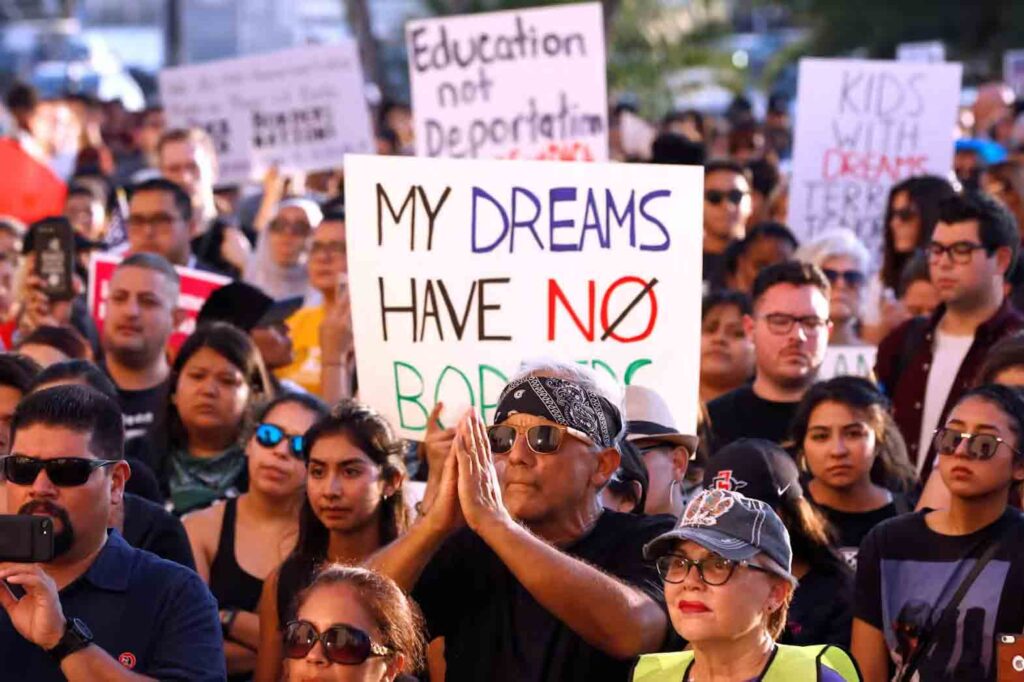How Trump’s mass deportation plan will impact undocumented Filipinos

FILE PHOTO
WASHINGTON – With nearly 4.2 million Filipinos in the United States, the contributions of Filipino Americans to US society are vast, diverse and deeply woven into the fabric of American life.
Yet, beneath this visible community, a shadowed population of what could be as many as one million undocumented Filipinos remains vulnerable to potential shifts in immigration policies.
Though estimates vary, data from the US Census Bureau, the Migration Policy Institute and the Pew Institute suggest that around 310,000 undocumented Filipinos live in the United States.
However, the true count is difficult to gauge accurately, as many undocumented individuals refrain from engaging with government data collection, fearing exposure and possible deportation.
For decades, these undocumented Filipinos have created lives, built families and worked tirelessly—often in low-wage, “under-the-table” jobs or as crew members who have “jumped ship” to seek better opportunities.
Many have overstayed visas, worked without authorization, or even arrived using fraudulent documentation. Despite these challenges, they have shared in the collective dreams and ambitions of the American promise, yet they now face a harsh reality that may shatter those dreams.
Mass deportation
With Donald Trump’s return to the presidency, with promises to reinstate strict immigration enforcement and mass deportation policies, these undocumented Filipinos could find themselves among those most affected.
A Trump-led administration could take a hard-line approach by executive order, prioritizing mass deportation and halting prosecutorial discretion policies that have, under the Biden administration, focused resources on felons and criminals rather than undocumented families and individuals contributing peacefully to society.
You may like: Judge strikes down Biden’s program shielding immigrant spouses from deportation
Unlike the broad protections afforded by Biden’s policy of prosecutorial discretion, which has given many undocumented immigrants a measure of stability, a return to mass deportation would leave undocumented Filipinos with few options.
Legal pathways are restricted, and the primary avenue for relief remains through family-based petitions. A genuine, bona fide marriage to a US citizen can provide some hope for legal status, but this avenue is neither simple nor accessible for everyone. Even then, individuals with prior violations face additional hurdles, and not everyone is eligible.
Green card holders
For green card holders who have run afoul of the law, the situation is just as dire. Their previous immigration violations and criminal records could make them a priority for deportation.
These individuals and their families risk being torn apart as a new administration may take a less compassionate stance on deportations, leaving little room for appeals.
The uncertainty of what may come places Filipino communities across the United States in a precarious position.
Collateral damage
Some may choose to go deeper underground, further isolated from services, jobs and social connections they had hoped to build. Others may seek support from the community, but fear of deportation can erode even these ties.
Tragically, the lives and futures of undocumented Filipinos could become collateral damage in a larger, contentious debate over immigration policy.
In light of this, we urge undocumented Filipinos to seek legal guidance from licensed immigration attorneys. These professionals can provide valuable insights into potential options, including guidance on family-based petitions and other legal remedies.
As a community, Filipinos are known for their resilience and determination, but under these new pressures, informed support is more critical than ever.
Without the protections of prosecutorial discretion and facing the specter of mass deportations, undocumented Filipinos should prepare and empower themselves to face this challenge.
Though the path forward may be uncertain, access to accurate information and legal assistance can provide essential support, offering hope and clarity in an otherwise daunting landscape.
Atty. Arnedo S. Valera is the executive director of the Global Migrant Heritage Foundation and managing attorney at the Law Offices Valera & Associate, a US immigration and anti-discrimination law firm for more than 32 years. He holds a master’s degree in International Affairs and International Law and Human Rights from Columbia University in New York and had training in international law at the International Institute of Human Rights in Strasbourg in France. He obtained a Bachelor of Laws from Ateneo de Manila University.

